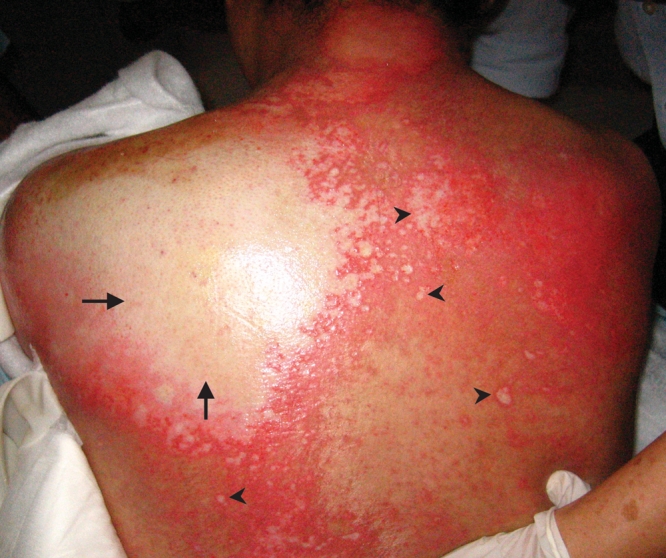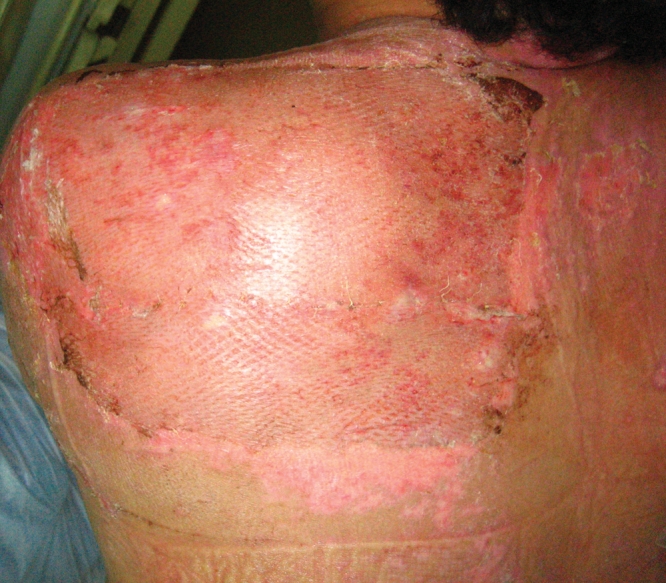A 48-year-old man who had a recent right-sided motor stroke was receiving food through a nasogastric tube. At the time of the incident, the patient's hands were restrained, and he had a Glasgow coma score of 10 (his eye, verbal and motor responses were scored as 3, 2 and 5 respectively). The patient's right upper-limb strength was 4 (out of 5). He had last received food through the nasogastric tube at 10 pm, and he was well at 1 am when he was repositioned onto his side. At 5 am, a nurse discovered that his nasogastric tube was disconnected. The bed sheets and the back of his shirt had been covered in gastric juices. The skin on his back was erythematous and tender, and there were satellite lesions surrounding the main lesions (Figure 1). The central portion of his back was insensate. His vital signs were stable. His clothes and bed sheets were changed immediately; however, he may have been in contact with the gastric juices for a couple of hours. A plastic surgeon confirmed that the patient had second-degree burns over 8% of his body and that he had peripheral first-degree burns. The patient received a tangential skin graft (Figure 2), and he recovered uneventfully.

Figure 1: After being in contact with gastric juices for several hours, the skin on the patient's back was erythematous and tender, with multiple satellite lesions (arrowheads) surrounding the main lesion (arrows).

Figure 2: The patient underwent a tangential skin graft after receiving second-degree burns over 8% of his body and peripheral first-degree burns.
This report illustrates the dangers of prolonged contact of gastric juices with skin. A similar, yet less severe, incident has been reported.1,2
Certain factors may have placed our patient at increased risk, including disorientation and the use of restraints, which may have prevented him from turning his back away from the gastric juices. The timing of the incident during the early morning, when the lights are routinely dimmed, may also have hampered early detection.
Jayant Daniel Thorat MS MCh(NS) Ernest Wang MBBS FRCS Department of Neurosurgery National Neuroscience Institute Singapore
Acknowledgments
We thank Dr. Timothy Shui for his photography assistance.
Footnotes
Competing interests: None declared.
REFERENCES
- 1.Danbury CM. Acid burns and feeding tubes. Patients should not be allowed to lie in their own vomit: gastric acid burns. BMJ 2002;325:496. [PMC free article] [PubMed]
- 2.Alvi R, Walmsley P, James MI. Deep dermal burn due to contact with stomach contents. Burns 2001;27:509-11. [DOI] [PubMed]


